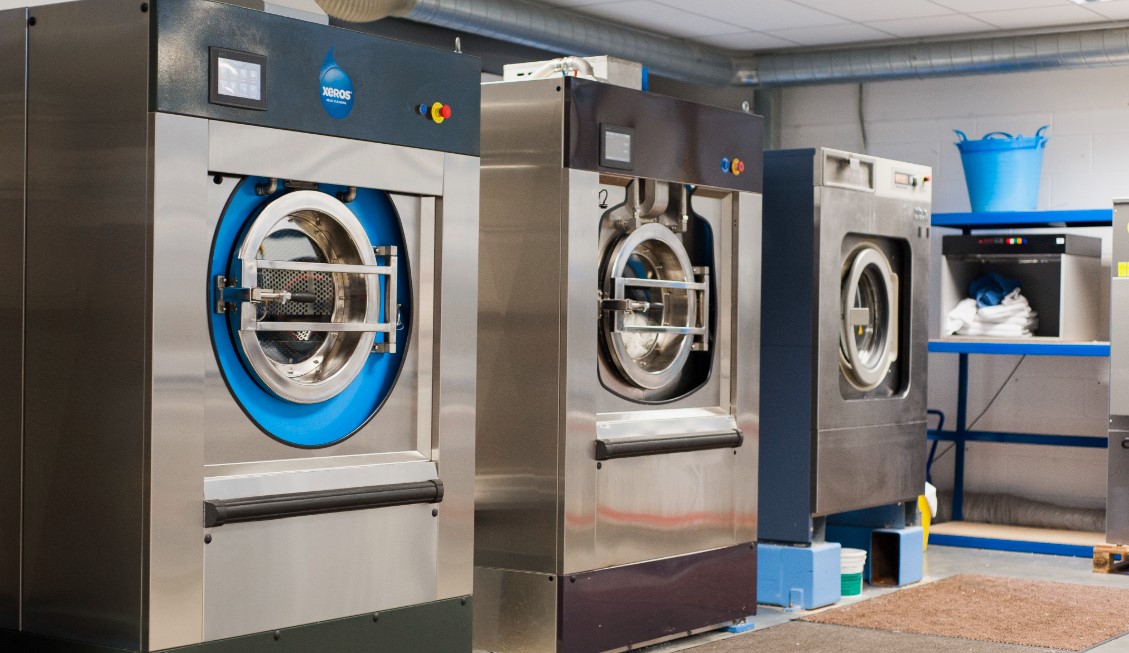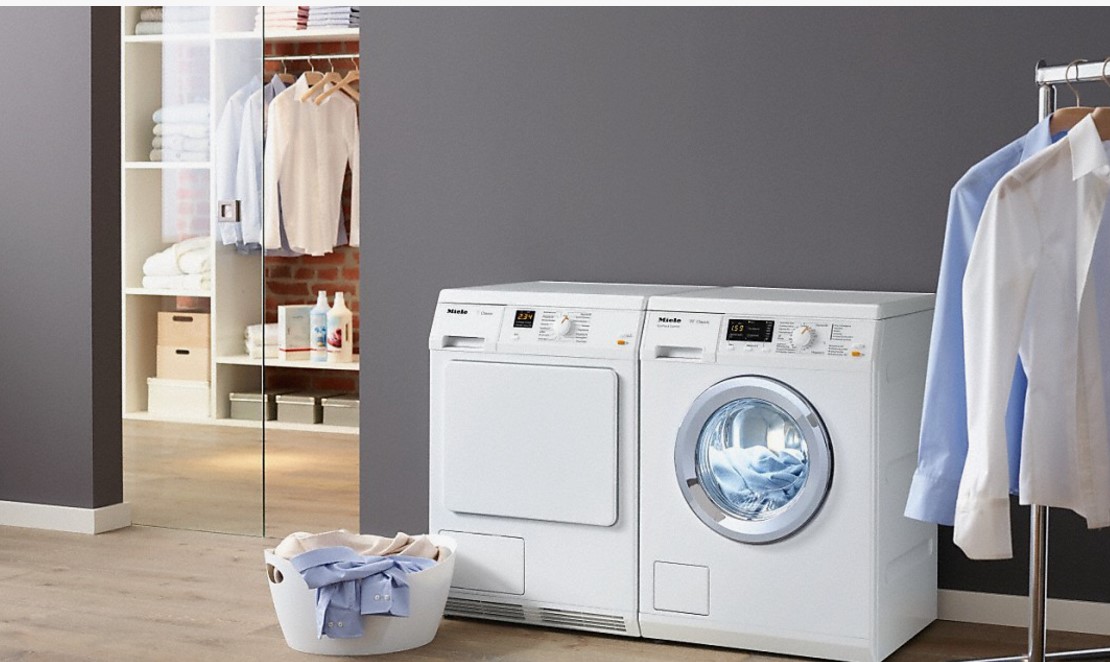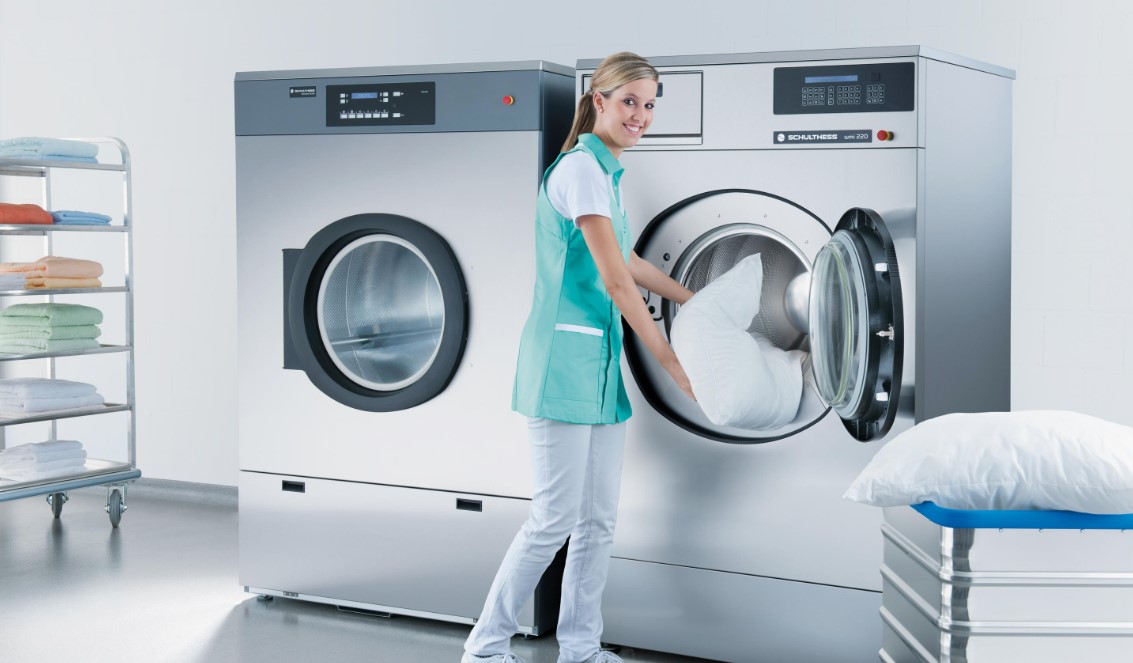Indoor air quality (IAQ) is a crucial factor in maintaining a healthy living environment, particularly in regions with extreme temperatures like Dubai and the UAE. Airborne contaminants in indoor spaces can lead to health issues, especially in densely populated urban areas. While conventional measures like ventilation and air purifiers are popular for IAQ management, an often-overlooked appliance can contribute significantly to improving air quality: the laundry machine. Here, we explore how proper use and maintenance of laundry machines help reduce indoor pollutants and contribute to a cleaner indoor atmosphere.
The Role of Laundry in Reducing Indoor Allergens
Laundry machines play a significant role in removing allergens from clothes, bedding, and other fabrics. In the UAE, where dust and sand are common environmental factors, allergens accumulate on clothes and are easily brought indoors. Regular washing helps remove these allergens, reducing their presence indoors. For individuals with respiratory sensitivities, laundering items frequently at high temperatures can be beneficial. Research indicates that washing fabrics at temperatures above 60°C effectively reduces dust mites, pet dander, and other allergens, which contribute to improved IAQ.
Managing Mold and Bacterial Growth with Laundry Care
In humid conditions, such as those found in the UAE, mold and bacteria can proliferate rapidly, impacting indoor air quality. Laundry machines, when used correctly, prevent the spread of these contaminants. Regularly washing towels, bed linens, and clothes removes bacteria and mold spores that can become airborne and degrade air quality. Additionally, using a dryer with proper ventilation reduces excess moisture, a common contributor to mold growth. By controlling humidity levels and thoroughly drying fabrics, laundry routines limit bacterial and mold activity indoors, creating a healthier environment.

Reducing Indoor Dust Through Regular Laundry Practices
Dust particles are a major contributor to poor IAQ, particularly in high-density areas and desert climates. Laundry machines help control indoor dust by cleaning dust-laden fabrics like curtains, couch covers, and rugs, which often accumulate fine particles over time. Routine washing of these items minimizes dust buildup on surfaces. As dust particles are commonly stirred up by daily activities, they become airborne and can be inhaled. By laundering frequently, households reduce the amount of dust in circulation, directly contributing to cleaner indoor air.
The Importance of High-Efficiency Particulate Air (HEPA) Filters in Laundry Appliances
High-efficiency particulate air (HEPA) filters are traditionally associated with air purifiers, but newer models of laundry machines are now equipped with HEPA filtration systems, improving their air-cleaning capacity. HEPA filters capture 99.97% of airborne particles, including pollen, pet dander, and fine dust. For UAE residents, choosing laundry machines with HEPA filters can add an extra layer of protection, removing microscopic pollutants that escape regular cleaning processes. These filters work by trapping fine particles in the machine itself, preventing re-release into the air and thus maintaining cleaner indoor environments.
Ventilation and Moisture Control: How Laundry Machines Help
Laundry rooms with inadequate ventilation are prone to moisture buildup, which contributes to poor IAQ by promoting mold growth. Effective laundry setups with proper venting solutions significantly mitigate this risk. By installing exhaust vents that expel moist air outdoors, laundry routines can reduce indoor humidity, which is essential in maintaining a stable IAQ. In the UAE’s humid climate, moisture control is especially relevant, as high humidity can lead to respiratory discomfort and exacerbate existing health conditions. With appropriate venting, laundry machines minimize moisture retention indoors, resulting in fresher, more breathable air.
Minimizing Chemical Residue from Detergents
Certain cleaning agents used in laundry processes release volatile organic compounds (VOCs) that may compromise IAQ. VOCs from detergents, fabric softeners, and bleach are known to affect respiratory health, especially in enclosed spaces. Opting for low-VOC or natural detergents helps reduce these emissions, creating a less contaminated air environment. For UAE residents sensitive to chemical residues, using detergent in moderation and opting for hypoallergenic products can contribute to a cleaner, chemical-free indoor atmosphere, benefiting overall IAQ.
Managing Pet-Related Air Pollutants Through Regular Washing
Pet dander, hair, and saliva are common allergens that degrade indoor air quality. In households with pets, regular washing of bedding, furniture covers, and other items that pets come into contact with is essential. Pet hair and dander can easily circulate within enclosed spaces and lead to respiratory discomfort. In the UAE, where air conditioning systems are often in use, airborne allergens may be continuously recycled through the air. Frequent laundering removes pet-related allergens from indoor environments, promoting healthier air quality for households with animals.
Improving IAQ Through Odor Control
Unpleasant odors can affect perceived air quality and stem from sweat, smoke, or food particles embedded in fabrics. Laundry machines with steam cycles or deodorizing features can neutralize odors effectively. Steam cycles work by releasing high-temperature steam to penetrate fabrics, breaking down odor-causing bacteria without relying on harsh chemicals. This feature is particularly helpful in the UAE’s hot climate, where perspiration odors can build up quickly on clothing. Using laundry machines with odor-neutralizing capabilities is a practical solution for maintaining fresh-smelling indoor environments, which contributes positively to IAQ.
Enhanced IAQ with Steam Washing Technology
Many modern laundry machines now include steam washing technology, which is an effective method for removing bacteria, viruses, and allergens from fabrics. Steam washing relies on high-temperature steam, which penetrates fibers deeply and kills microscopic pollutants. For households in Dubai and the UAE, where dust and germs are prevalent, steam washing provides an added benefit by ensuring fabrics are free from contaminants that could compromise indoor air. This process is especially advantageous for individuals with respiratory conditions, as it helps maintain a cleaner indoor atmosphere by effectively sanitizing everyday items.
The Impact of Proper Machine Maintenance on Air Quality
Routine maintenance of laundry machines is essential for optimal performance and indoor air quality. Over time, residue from detergents and fabric softeners can accumulate within the machine, creating a breeding ground for bacteria and mold. Regularly cleaning the drum and seals with mild disinfectants can prevent these contaminants from building up. Additionally, clearing out lint traps and exhaust vents prevents particles from being released into the air. For UAE residents, especially those in humid regions, consistent machine maintenance is critical for reducing airborne pollutants and enhancing IAQ.

Best Practices for Laundry to Maximize IAQ
Establishing best practices for laundry routines can significantly contribute to improved IAQ. Washing items regularly, especially those in frequent contact with skin, reduces the buildup of allergens, odors, and bacteria. Using the appropriate water temperature and detergent types for different fabrics further enhances cleanliness and minimizes allergen exposure. In climates like the UAE, using dryers with proper ventilation systems reduces indoor moisture levels. By adopting these practices, households can maintain a cleaner indoor environment, ultimately contributing to improved air quality and comfort.
Laundry Routines as Part of a Holistic IAQ Strategy
Improving IAQ is a multifaceted approach involving ventilation, humidity control, and regular cleaning practices, with laundry routines playing an essential role. While air purifiers and HVAC systems are common solutions, the way we manage textiles in our homes also impacts indoor air quality. Regularly laundering items, maintaining machines, and selecting appropriate products all contribute to a cleaner and more comfortable indoor environment. In UAE households, where high temperatures and dust levels require added IAQ consideration, optimizing laundry routines provides an effective method to enhance the overall air quality.
Conclusion
In regions such as Dubai and the UAE, where environmental factors such as heat, dust, and humidity present distinct challenges, indoor air quality is essential for healthy living. In addition to their primary function, laundry machines provide substantial advantages for the preservation of indoor air quality. Effective laundry routines contribute to a clearer indoor environment by managing moisture, minimizing dust, controlling allergens, and reducing chemical exposure. Incorporating laundry practices into an IAQ management strategy provides households with a practical and valuable tool for improving indoor comfort and respiratory health, as awareness of the significance of IAQ increases

Hiking addict, shiba-inu lover, record lover, Swiss design-head and New School grad. Acting at the crossroads of modernism and sustainability to craft an inspiring, compelling and authentic brand narrative.


